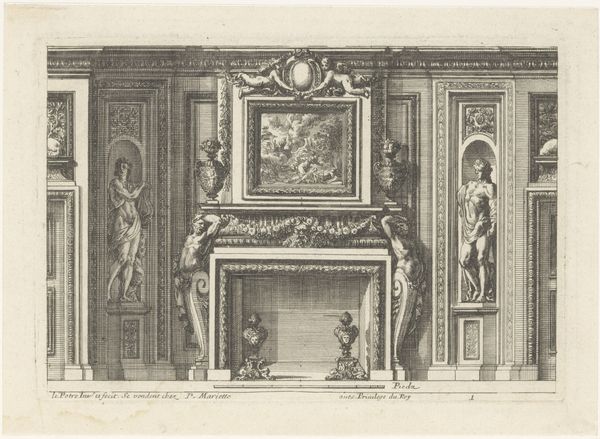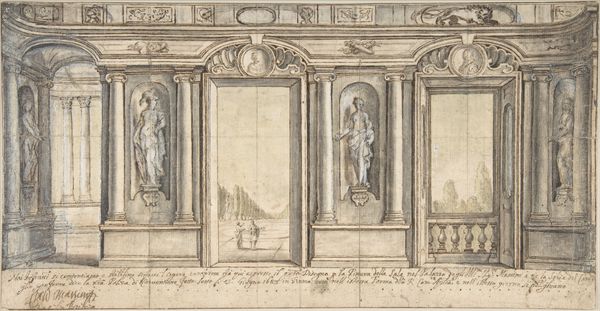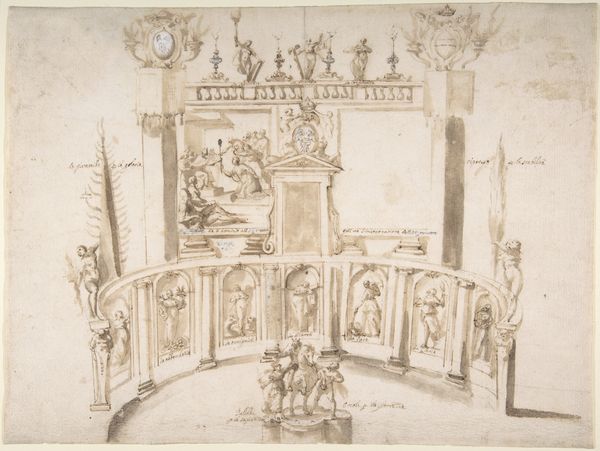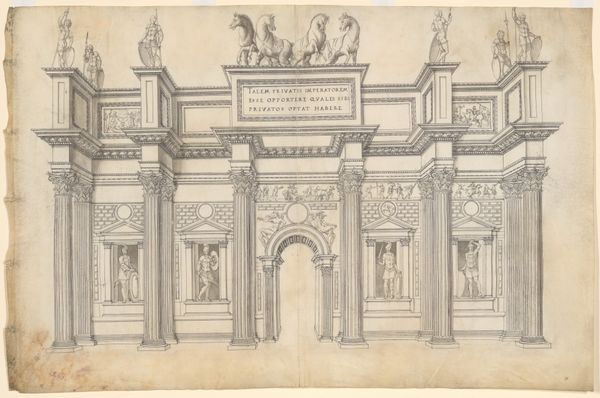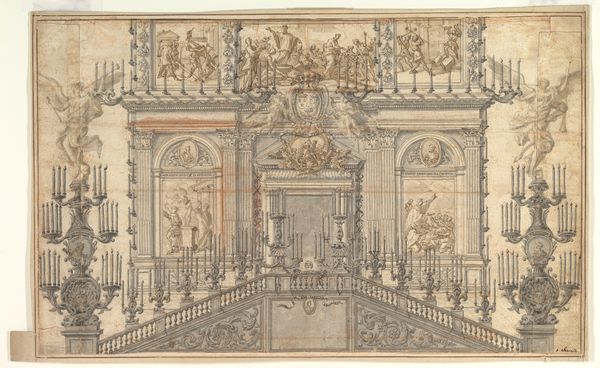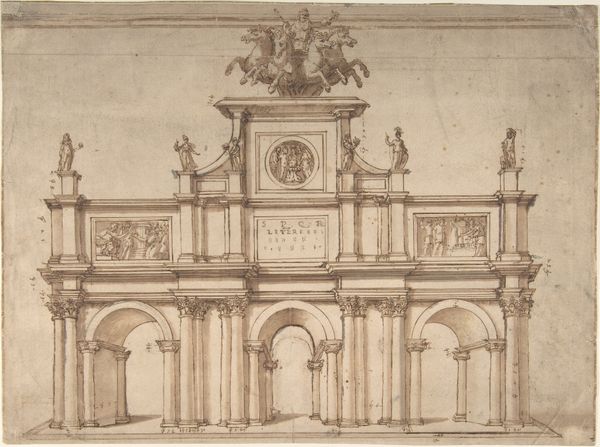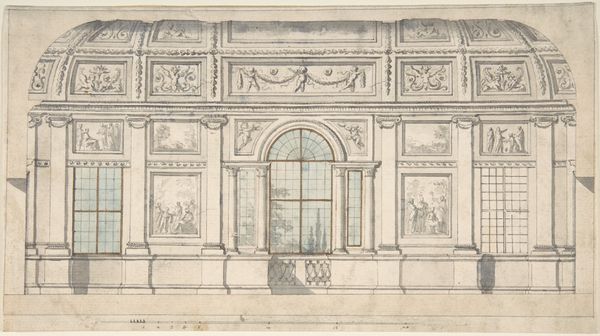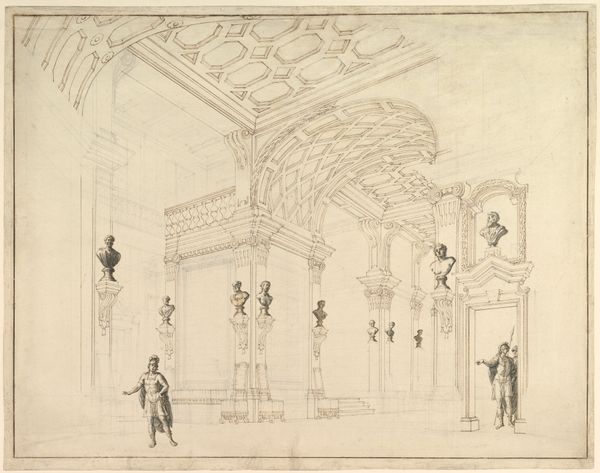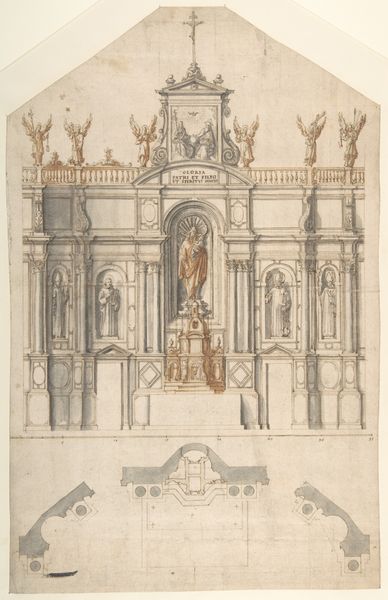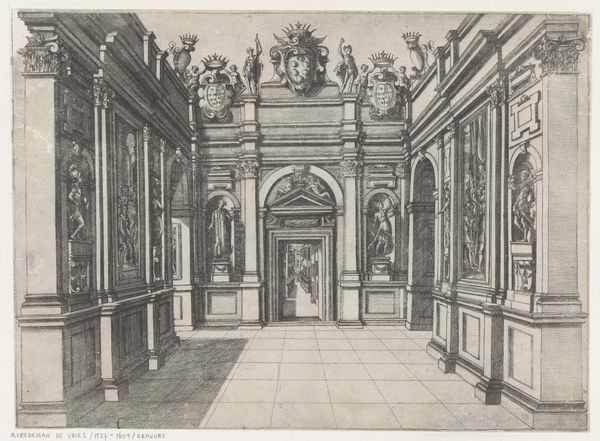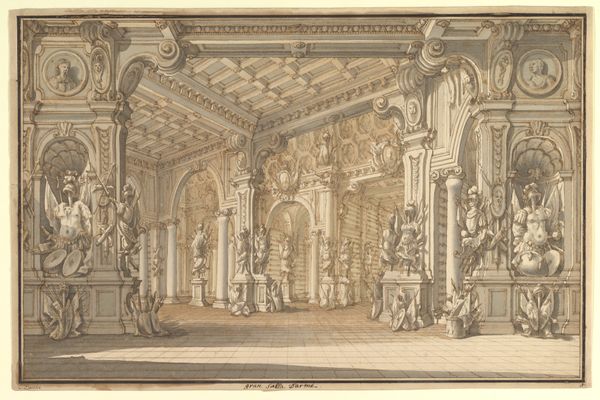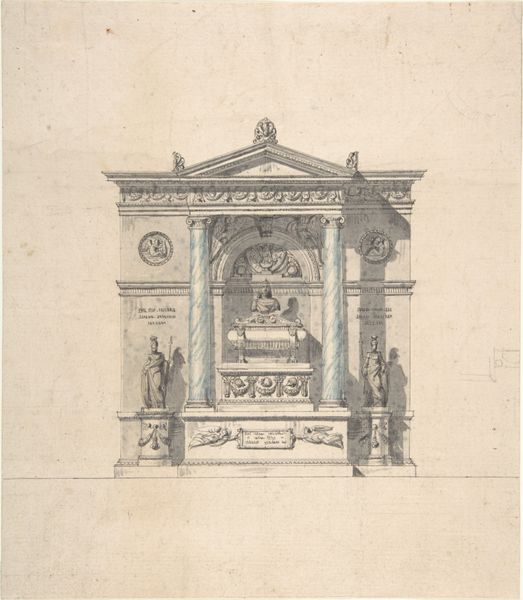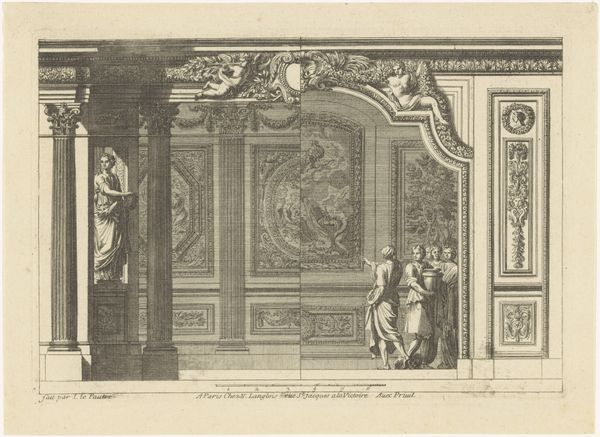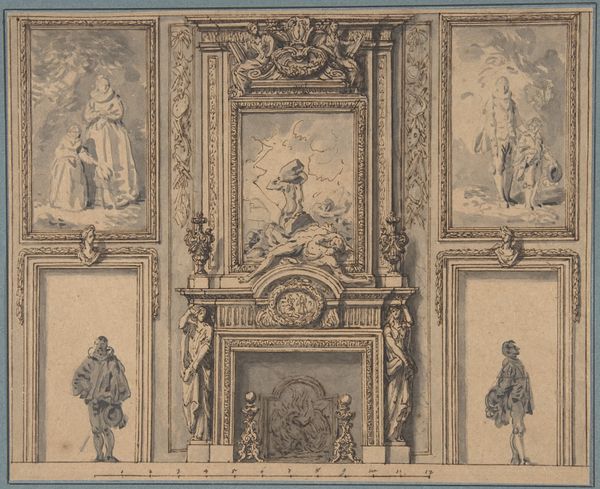
Dimensions: support: 460 x 605 mm
Copyright: CC-BY-NC-ND 4.0 DEED, Photo: Tate
Editor: This is Giovanni Battista Cipriani's "Design for the Illumination for the King’s Birthday." It's hard to put my finger on why, but the composition feels incredibly structured, almost rigid. What strikes you about this piece? Curator: Indeed. Note the rigorous symmetry, the alternating rhythm of columns and niches. The artist deploys classical architectural elements—pilasters, pediments, entablatures—to create a sense of order and stability. Do you observe how the use of line and wash emphasizes the clarity of form? Editor: Absolutely, the linear precision is compelling. I hadn't considered the deliberate employment of classical elements to evoke such a strong sense of order. Curator: Precisely. Cipriani’s meticulous rendering guides the eye, reinforcing the architectural structure and its inherent rationality. The artwork's effect derives from these intrinsic qualities. Editor: I see it now; focusing on the structure unlocks a whole new understanding. Thanks!
Comments
tate 10 months ago
⋮
http://www.tate.org.uk/art/artworks/cipriani-design-for-the-illumination-for-the-kings-birthday-t08124
Join the conversation
Join millions of artists and users on Artera today and experience the ultimate creative platform.
tate 10 months ago
⋮
The Italian Cipriani was one of the earliest exponents in England of the neo-classical style. He was greatly admired for the clarity of his draughtsmanship, and collaborated with the architect Sir William Chambers on the interior designs for several of Chambers's buildings. Both he and Chambers were Founder Members of the Royal Academy of Arts which was set up in 1768. This design, actually devised by Chambers, is for the illumination of the front of the Academy's building, an annual event to celebrate the King's birthday. It represents the Academy's interests - Architecture on the left, Sculpture on the right and Painting in the centre. The execution of the painting was a communal effort between Academy members. Gallery label, September 2004
